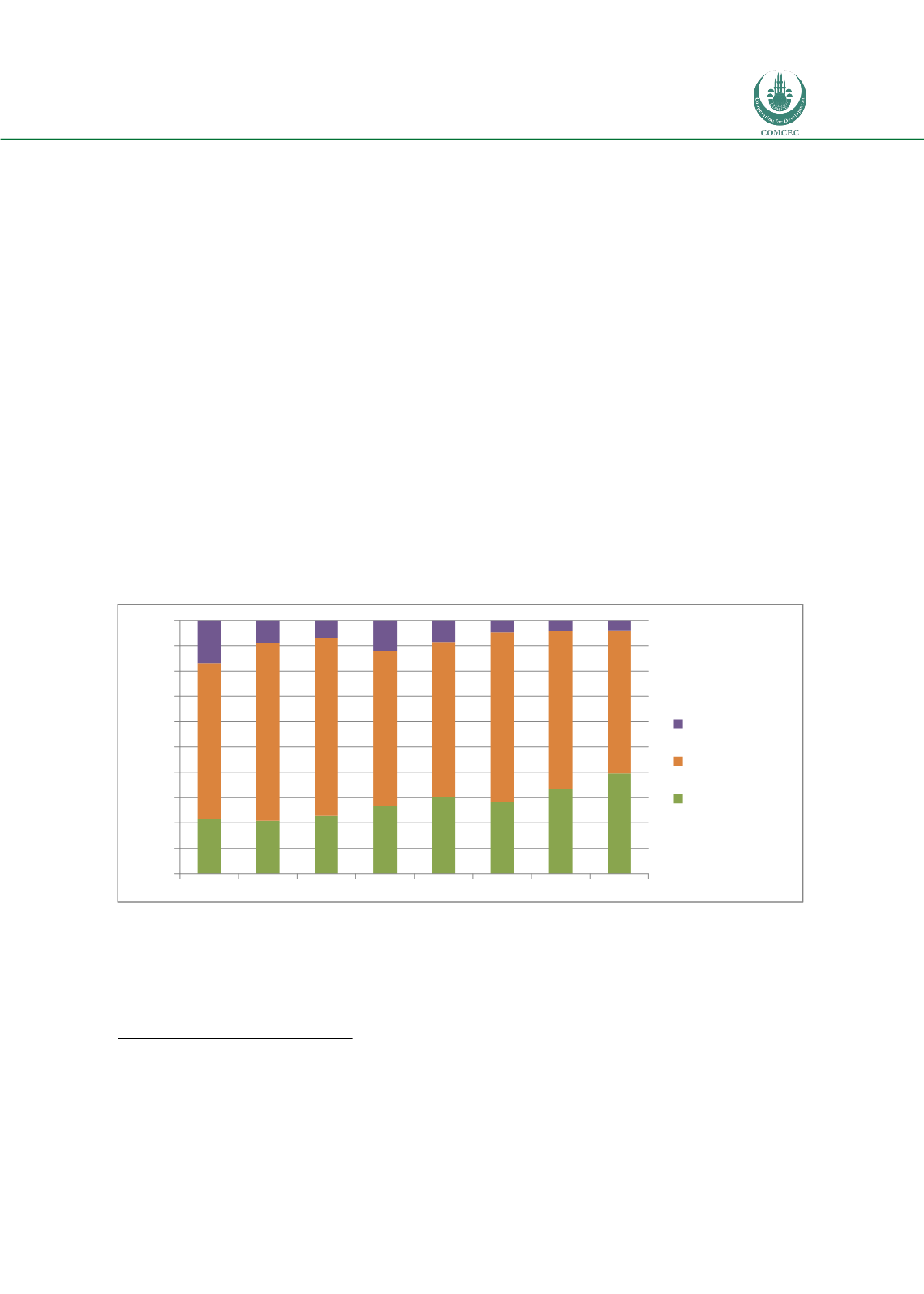

Forced Migration in the OIC Member Countries:
Policy Framework Adopted by Host Countries
155
refugee protection
138
in line with the 1951 Convention and EU Qualification Directive, with the
addition of a provision for protection from persecution on the basis of an applicant’s gender or
sexual orientation; and (2) subsidiary protection based on the EU Qualification Directive,
which also provides for the protection of individuals who are “unable to return to the country
of origin because of an environmental disaster,” although this provision has in fact never been
used in Sweden.
139
Two additional forms of protection are available for forced migrants under the Aliens Act,
beyond those stipulated under EU law. First, the Aliens Act provides for persons who
otherwise would not qualify for protection under refugee or subsidiary protection to be
granted residence permits if there are “exceptionally distressing circumstances,” such as a
serious health condition, that require him or her to stay in Sweden.
140
Temporary protection
and residence can also be granted to individuals who are subject to a removal order but
temporarily cannot be returned to their country of origin.
141
This last status is most often used
in the cases of unaccompanied children who cannot be returned to their home countries
because their families cannot be identified or because arrangements in the home country to
provide for a guardian would be insufficient to meet Swedish standards.
142
Together these
provisions, referred to as humanitarian protection, provide broad protection from
refoulement for those who otherwise would not qualify for protected status.
Figure 23: First instance positive decisions on asylum applications, by status granted, 2008-
2015
Note: Humanitarian status includes temporary status provided under Chapter 5 of the Aliens Act.
Source: Eurostat, "First instance decisions on applications by citizenship, age and sex Annual aggregated data
(rounded) [migr_asydcfsta]," updated May 4, 2016
138
Aliens Act
, Chapter 4(1)
139
Interview with Helene Hedebris, Legal Affairs Expert, Region South, Migrationsverket, April 15, 2016.
140
In cases involving children, authorities are required to apply the lower standard of “particularly distressing
circumstances” instead.
Aliens Act
, Chapter 5(6). Interview with Helene Hedebris, Legal Affairs Expert, Region South,
Migrationsverket, April 15, 2016.
141
Aliens Act,
Chapter 5(11-12)
142
Interview with Helene Hedebris, Legal Affairs Expert, Region South, Migrationsverket, April 15, 2016.
0%
10%
20%
30%
40%
50%
60%
70%
80%
90%
100%
2008 2009 2010 2011 2012 2013 2014 2015
Humanitarian
status
Subsidiary
protection
Refugee status
















